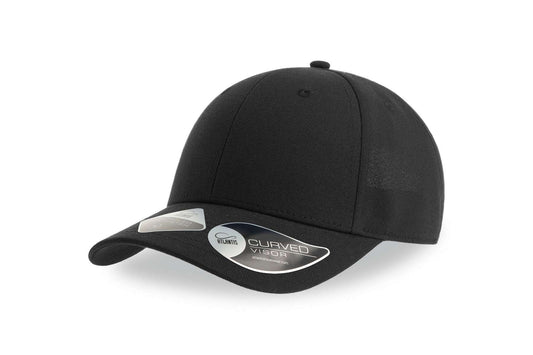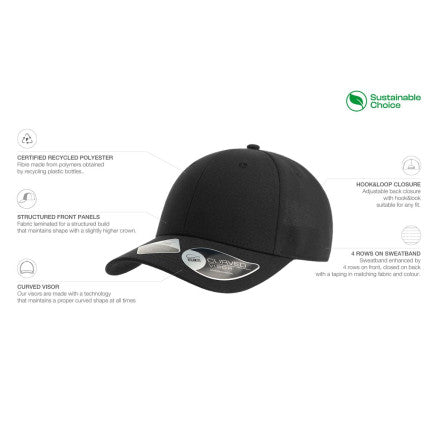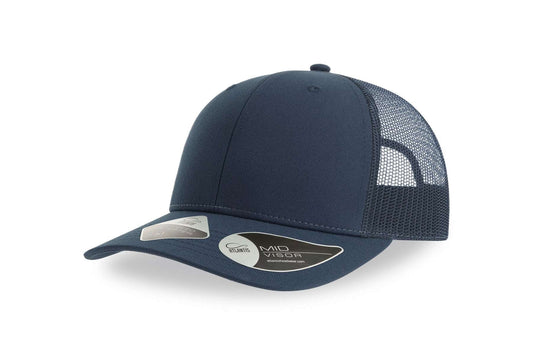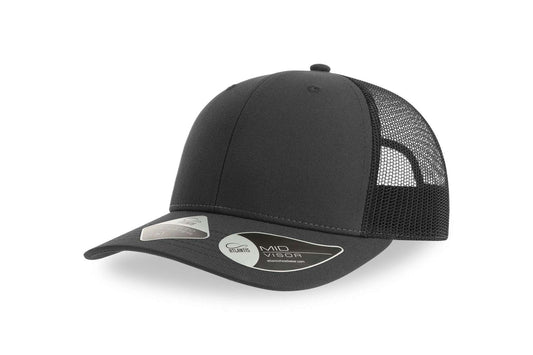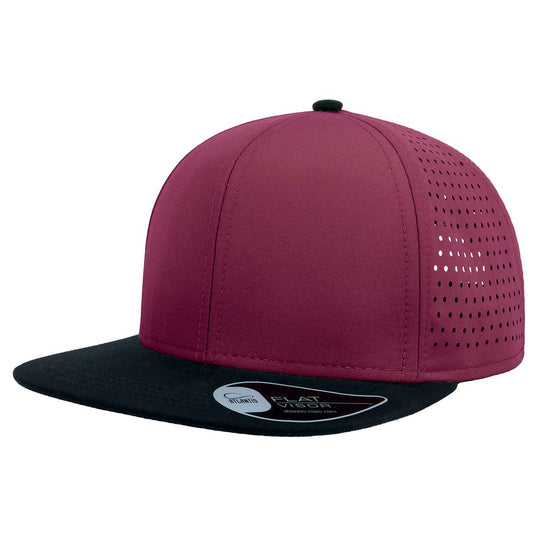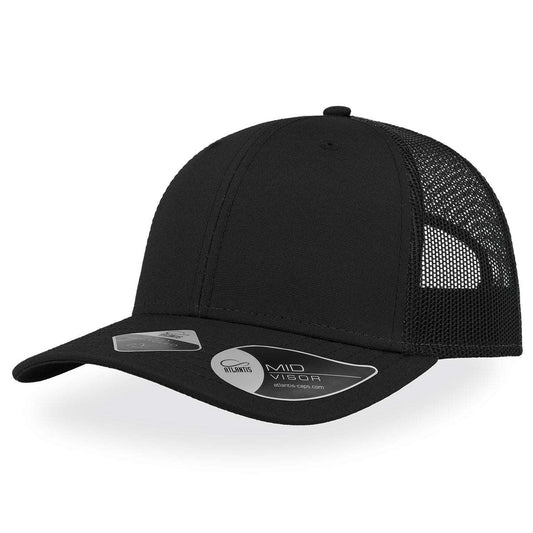
Recycled Polyester
Polyester is an important fiber in our collections and one of the most widely used in the world: strong, durable and crease-resistant, it allows us to make lightweight headwear that dry quickly. But its production comes at an environmental cost: it’s a synthetic fiber derived from oil with a lower environmental impact than the production of natural fibers in terms of water and land1 but, the energy required to produce polyester makes it a very high-impact process2. This is why Atlantis wants to encourage the use of recycled polyester instead of virgin fossil-based one.
Its alter-ego, recycled polyester, or rPET, is made from polymers obtained by melting used plastic bottles and transforming them into textile fiber. Did you know that every minute, nearly 1 million plastic bottles are purchased around the world?3
Even if recycled options allow a reduction of emissions compared to the virgin options, we know that it’s not the definitive solution to pollution from synthetic fibers: rPET’s mechanical recycling process significantly reduces the material’s quality and unfortunately very few clothes are recycled back into textile use and the majority of wasted polyester garments are still in the landfills. Moreover, rPET is not biodegradable and loses microplastic fibers as much as virgin plastic.
However, there are good reasons for choosing to use this material in our products:
• Resistance: when exposed to the sun, the material does not lighten and does not lose quality, unlike cotton; this allows for greater durability and a reduction in waste
• Lack of large-scale alternatives: there are currently no alternatives to mechanically recycled rPET on a large scale
To remedy the problems relating to the rPET, we will commit to a series of virtuous behaviours along our path of sustainable transition. For example, we believe it is necessary to carry out continuous monitoring of the chemically recycled polyester market which, although generally characterized by a greater environmental impact than its mechanically recycled equivalent, can be subjected to a greater number of recycling processes while keeping the quality intact. Furthermore, we are evaluating collaborations with organizations along the supply chain to guarantee the recycling of the waste generated during production. Another option that we consider as an alternative to rPET is the use of other materials, such as recycled nylon or recycled wool.
In conclusion, recycled polyester is still a more environmentally sustainable fiber than virgin polyester. The more we recycle, the less garbage winds up in our landfills. We can reduce our reliance on petroleum, save natural resources, production and energy costs and reduce the negative impacts of the extraction and processing of virgin materials.
Our LCA study4 conducted on polyester products showed that when we replace virgin polyester with recycled polyester we reduce the CO2 emissions of 4% and if we replace acrylic we have a reduction of almost 70%. Impressive!
Recycling helps us reduce the industry’s reliance on fossil fuel sources and manage our resources in a more ethical way: using products to their full potential.
1.Sustainable Apparel Materials 2015
2.Environmental Sciences Europe (2021) Analysis of the polyester clothing value chain to identify key intervention points for sustainability
3.The Guardian
4.The LCA was conducted on selected articles, taking takes into account the complete life of the product, from its production to the distribution
5.Comparison calculated on 1kg woven recycled polyester vs virgin polyester from Textile Exchange data
Why Choose Recycled Polyester?
-

The spread of plastic pollution is prevented & non-renewable energy sources (eg. oil) are conserved
-

It uses 62% less energy than virgin polyester
-

Compared to virgin polyester, rPET reduces CO2 emissions by 16%.
-

rPET reduces waste by 34% compared to conventional polyester.
-

Compared to conventional polyester, rPET reduces water usage by 99%.
Our Recycled Polyester Range
-
Joshua Recycled Baseball Cap
Regular price $25.00Regular priceUnit price / per -
Bryce Recycled Trucker
Regular price $30.00Regular priceUnit price / per -
Bank Perforated Flat Peak Cap
Regular price $30.00Regular priceUnit price / per -
Recy Three Cap Trucker
Regular price $35.00Regular priceUnit price / per


